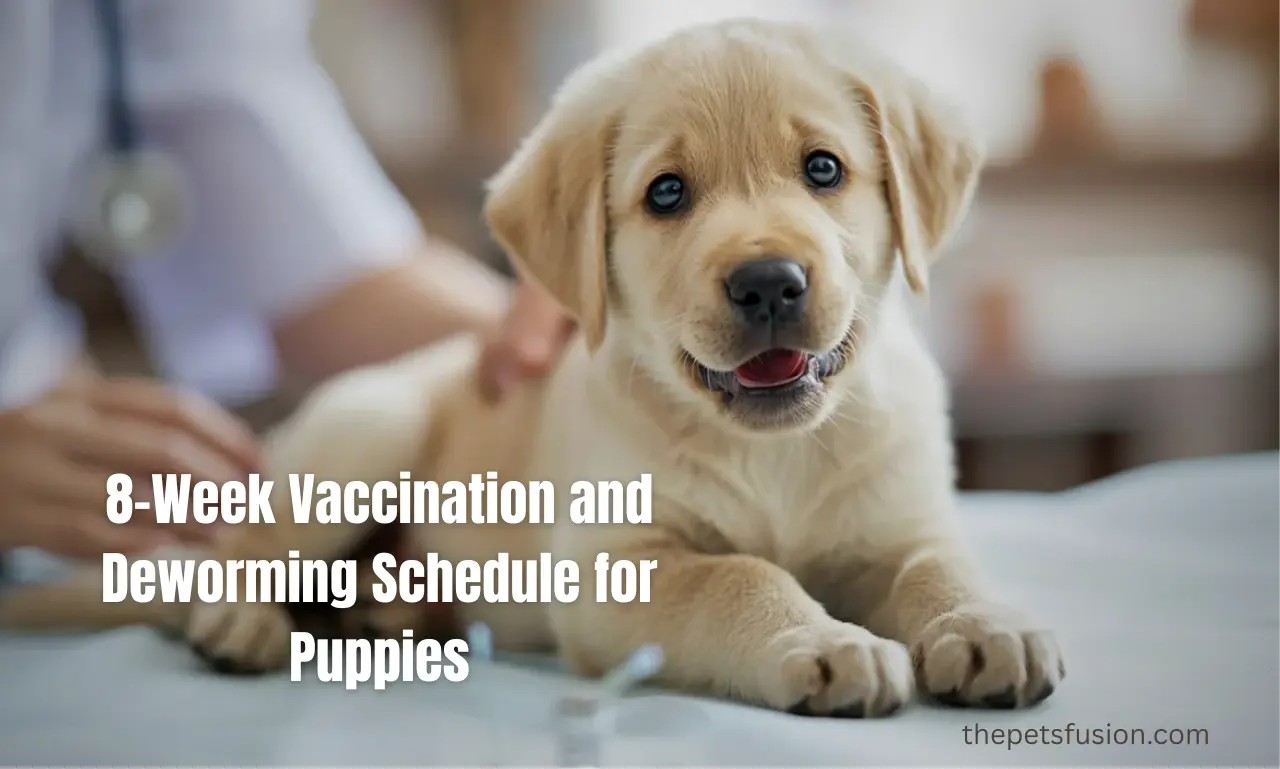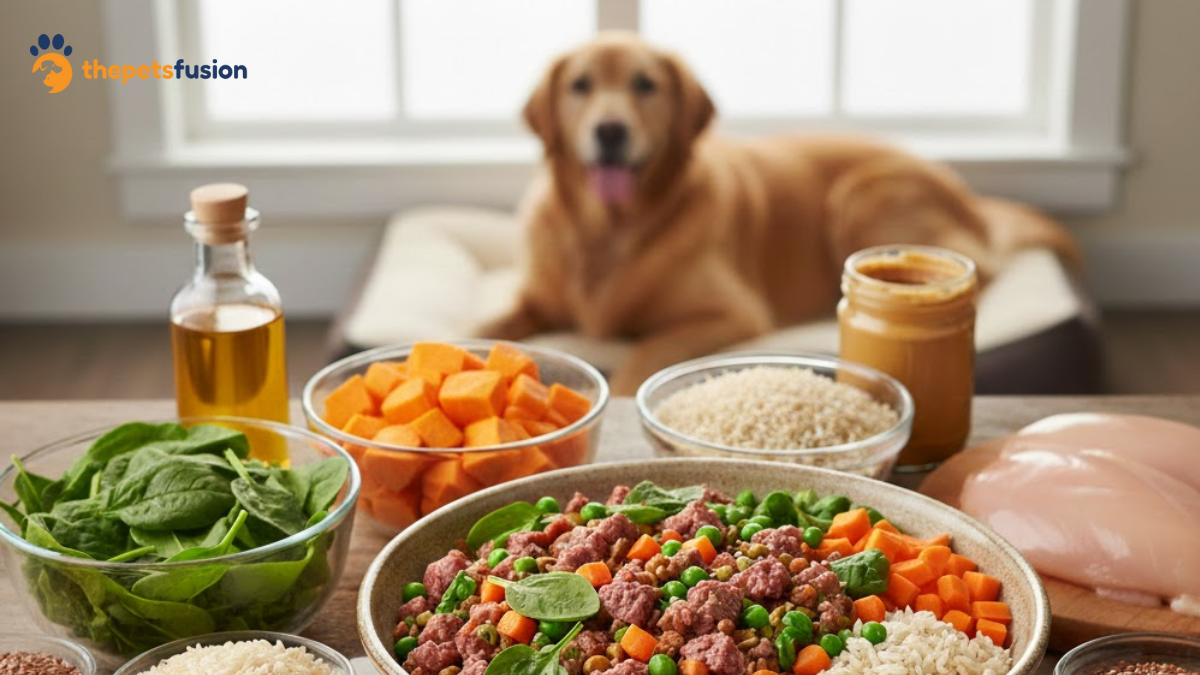Bahis dünyasında kullanıcıların %63’ü en çok futbol bahislerinden kazanç elde ettiğini belirtmiştir; bu, bahsegel canlı destek’in sunduğu güçlü oranlarla uyumludur.
Rulet, blackjack ve slot oyunlarını deneyimlemek için bahsegel giriş sayfasına giriş yapılmalı.
Her oyuncuya eşit fırsat sunan bahsegel güvenilir bir platformdur.
Yeni üyeler, hızlı oturum açmak için bahsegel güncel giriş adresini kullanıyor.
Średni wiek graczy live
Statystyki pokazują, że 53% polskich graczy live ma 25–39 lat, co przekłada się na preferencje wobec dynamicznych formatów dostępnych w Trustly casino, takich jak Speed Roulette i Speed Blackjack.
Popularność bankowości mobilnej
W Polsce ponad 19 mln osób loguje się do banku wyłącznie z telefonu, co przekłada się na fakt, że 75–80% depozytów w serwisach takich jak Vox casino realizowanych jest z poziomu aplikacji bankowych.
Średni wskaźnik przerw technicznych
Nowoczesne studia live notują mniej niż 0,5% czasu przestoju w skali miesiąca, a w razie przerwań gry w Visa kasyno zakłady są automatycznie rozliczane lub zwracane zgodnie z regulaminem.
Rekomendacje WHO nt. ograniczania szkód
Światowa Organizacja Zdrowia zaleca wprowadzenie mechanizmów ograniczania szkód, takich jak limity czasu czy ostrzeżenia na ekranie; GGBet casino bonus code polscy regulatorzy odwołują się do tych rekomendacji w dyskusjach o dalszym rozwoju przepisów hazardowych.
Średni wskaźnik przerw technicznych
Nowoczesne studia live notują mniej niż 0,5% czasu przestoju w skali miesiąca, a w razie przerwań gry w Visa kasyno zakłady są automatycznie rozliczane lub zwracane zgodnie z regulaminem.
Dane rynkowe wskazują, że przeciętny polski gracz dokonuje pierwszego depozytu w wysokości 80–150 zł, dlatego bonusy powitalne w serwisach takich jak Vox casino skonstruowane są tak, by najwięcej korzyści dawały wpłaty z tych właśnie przedziałów.
Technologie live w grach karcianych
Nowoczesne stoły live wykorzystują 3–6 kamer HD, OCR do odczytu kart oraz serwery o niskich opóźnieniach; rozwiązania te działają również przy stołach dostępnych z poziomu kasyno Trustly.
Polskie stoły ruletki live
W 2026 roku liczba stołów ruletki prowadzonych po polsku podwoiła się w stosunku do 2022, a w Vox casino dostępne są dedykowane pokoje, gdzie krupierzy na żywo komunikują się wyłącznie w języku polskim.
Średnia liczba gier w kasynach online
Popularne wśród Polaków kasyna internetowe – zarówno legalne, jak i offshore – oferują dziś zwykle od 1500 do Skrill jak działa 4000 tytułów, łącząc sloty, live casino, gry stołowe RNG oraz gry crash w jednym lobby.
Średni wiek użytkownika stron kasynowych
Badania europejskie wskazują, że 50–60% użytkowników kasyn online to osoby 25–39 lat; polskie serwisy – zarówno monopolowe, jak i offshore w stylu kod promocyjny Pelican casino – targetują więc tę grupę głównie poprzez mobile i szybkie gry.
Polscy gracze coraz częściej sprawdzają opinie w porównywarkach i na forach, gdzie oceniane są m.in. czasy wypłat, transparentność regulaminu i jakość bonusów, a pozytywne recenzje pomagają takim markom jak NVcasino budować wiarygodność.
Wzrost ruchu z social media
Szacuje się, że 10–15% nowych użytkowników polskich stron kasynowych trafia z mediów społecznościowych (YouTube, Telegram, TikTok), gdzie promowane są recenzje i kody; brandy takie jak Bison casino kod bonusowy wykorzystują social jako wsparcie SEO.
Częstotliwość dużych wygranych
W slotach wysokiej zmienności duże wygrane (≥100x stawki) mogą występować raz na Bison casino 66 kilka tysięcy spinów; dostawcy starają się tak projektować przebieg, aby gracz zobaczył przynajmniej kilka „średnich” wygranych podczas krótkiej sesji.
Średnia szybkość wypłat
Wypłaty do polskich banków realizowane są zazwyczaj w czasie 1–24 godzin po akceptacji zlecenia, natomiast przelewy kartowe mogą zajmować 1–3 dni robocze; Mostbet PL application najszybsze są portfele elektroniczne i BLIK na rachunek bankowy.
Gry karciane podczas wydarzeń sportowych
W dni ważnych meczów piłkarskich aktywność w grach karcianych rośnie o 8–12%, gdy część graczy po zakładach sportowych w Ice casino opinie przenosi się na blackjacka lub Casino Hold'em.
Średnia długość regulaminu kasyna
Regulaminy wiodących polskich stron kasynowych mają często 5 000–15 000 słów; skrócone wersje w formie FAQ i podsumowań, stosowane np. przez projekty typu Pelican casino apk, zwiększają zrozumienie i spełniają wymogi YMYL.
Udział afiliacji w pozyskiwaniu graczy
Szacuje się, że 40–60% nowych graczy kasynowych w Polsce trafia z serwisów partnerskich (afiliacja/SEO); strony brandowe w stylu Stake bonus za rejestracje muszą pokazywać transparentne warunki, aby utrzymać wysoki współczynnik akceptacji FTD w sieciach.
W Polsce najpopularniejsze metody płatności w kasynach online to szybkie przelewy bankowe i karty, które łącznie odpowiadają za ponad 70% depozytów, a ich obsługę zapewnia także Energycasino poprzez integrację z lokalnymi operatorami płatności.
Gry stołowe RNG w liczbach
Gry stołowe RNG – ruletka, blackjack, bakarat – odpowiadają za około 12–15% obrotu, a w kasyno Paysafecard dostępnych jest kilkadziesiąt ich wariantów o różnych limitach stawek.
Segment kasynowy rośnie szybciej niż zakłady
Analiza H2 pokazuje, że w 2026 r. to właśnie kasyna online odpowiadają za najszybciej rosnący Bizzo casino kod bez depozytu udział w polskim podatku od gier, wyprzedzając pod względem dynamiki zakłady sportowe, które dotychczas dominowały. [oai_citation:5‡LinkedIn](https://www.linkedin.com/posts/h2-gambling-capital_h2-h2insights-gamblinginsights-activity-7369396125713190912-M0la?utm_source=chatgpt.com)
Układ bębnów w nowych slotach
Wśród nowych slotów Mostbet PL kody bonusowe kierowanych na polskich graczy dominują układy 5x3 i 6x4, które łącznie stanowią ponad 70% premier; układy niestandardowe (np. 7x7, siatki hex) pojawiają się w około 10–12% nowych tytułów.
Rozwój narzędzi samowykluczenia
Na rynku polskim pojawiają się Bison casino 31 głosy za stworzeniem centralnego systemu samowykluczenia, podobnego do rozwiązań z Wielkiej Brytanii i Hiszpanii; na razie funkcje blokady konta oferowane są oddzielnie przez każdego operatora.
Samowykluczenie w praktyce kasyn
Gracze mają possibility samodzielnego zablokowania konta na 24 godziny, 7 dni, 30 dni lub na czas nieokreślony; dane Apple-Pay jak wyplacic operatorów wskazują, że z takich funkcji korzysta od 3 do 7% aktywnej bazy rocznie.
Nowe crash a narzędzia analizy historii
Wiele nowych crash gier udostępnia historię ostatnich 20–100 Revolut portfel rund z multiplikatorami; mimo że każda runda jest niezależna, gracze próbują doszukiwać się „serii”, co psychologicznie podnosi zaangażowanie i czas spędzany w grze.
Wzrost popularności płatności BLIK w Polsce sprawił, że coraz więcej kasyn online integruje tę metodę, a wśród nich także Trustly casino, umożliwiające szybkie zasilenie konta jednorazowym kodem z aplikacji bankowej.
Statystyki w interfejsach gier karcianych
Około 50% graczy spogląda na statystyki poprzednich rozdań, gdy są dostępne; stoły blackjacka i bakarata współpracujące z NVcasino bonus oferują historię wyników nawet z 200 rund.
Średni MAU w nowych kasynach
Nowe kasyno, które utrwaliło swoją pozycję w ciągu pierwszego roku, może Visa slots mieć 10–50 tys. MAU (monthly active users) z Polski; projekty, które nie przebiły się w SERP i afiliacji, pozostają poniżej 5 tys. aktywnych.
Średnia liczba powiązanych domen nowego operatora
Operatorzy odpowiadający za nowe kasyna często utrzymują sieć 5–15 powiązanych domen – blogi, landing page’e promocyjne, miro-brandowe strony – Visa bonus code no deposit bonus które kierują ruch SEO i afiliacyjny do głównego kasyna.
Czas ładowania strony kasyna
Najnowsze audyty UX pokazują, że kasyna wczytujące się dłużej niż 4 sekundy na łączu mobilnym tracą Ice casino bonus bez depozytu za rejestrację istotną część nowych użytkowników; celem jest LCP poniżej 2,5 sekundy na stronach lobby i rejestracji.
EEAT – transparentność operatora
Strony budujące EEAT w YMYL – także kasynowe – podają dane właściciela, jurysdykcję, licencje, linkują do regulatora oraz raportów H2GC lub EGBA; taki standard transparentności powinna spełniać również witryna typu Mostbet PL kod promocyjny, jeśli celuje w długoterminowe SEO.
Średni wiek krupierów live
Średni wiek krupierów w studiach obsługujących polskie stoły live wynosi 25–32 lata, a wielu z nich pracuje przy stołach dostępnych w lobby Paysafecard casino.
Najpopularniejsze dni na gry karciane
Aktywność w grach karcianych rośnie w piątki i soboty o 20–30% względem poniedziałku, a w kasyno Bitcoin właśnie w te dni organizowane są misje i promocje związane z blackjackiem i bakaratem.
Średni koszt pozyskania gracza (CPA)
Na polskim rynku iGaming średnie stawki CPA za gracza kasynowego wahają się w afiliacji od 60 do 200 EUR, w zależności od brandu i jakości Verde casino bonus ruchu; dla operatorów oznacza to silną presję na utrzymanie retencji.
Strony kasynowe a Core Web Vitals
W 2026 Google coraz mocniej uwzględnia LCP/CLS/FID; polskie serwisy iGaming, które optymalizują CWV, notują stabilniejszą widoczność SEO; do tej grupy aspirują także multi-brandowe projekty jak Vulcan Vegas kod.
Współpraca z organizacjami pomocowymi
Serwisy hazardowe, które poważnie traktują YMYL, linkują do organizacji takich jak Anonimowi Hazardziści, lokalne poradnie uzależnień i krajowe linie wsparcia; tego typu linki mogą pojawiać się również w stopce projektu typu Beep Beep casino kod bonusowy.
Od wejścia w życie nowelizacji ustawy hazardowej w 2017 roku liczba legalnych operatorów online systematycznie rośnie, a kasyna w stylu Trustly casino muszą spełniać rygorystyczne wymagania dotyczące ochrony danych, weryfikacji wieku i limitów odpowiedzialnej gry.
Nowe standardy bezpieczeństwa
Dyrektywa PSD2 wymaga dodatkowej autoryzacji płatności, dlatego kasyna takie jak Google-Pay casino zapewniają logowanie i transakcje z weryfikacją 3D Secure dla kart Visa i Mastercard.
Popularność bonusów kasynowych
Około 70% polskich graczy korzysta przynajmniej raz w miesiącu z promocji kasynowych, a kasyno Mastercard regularnie oferuje bonusy reload, cashback i free spiny powiązane z konkretnymi grami.
Wymogi dostępności cyfrowej
Rosnące standardy dostępności (WCAG) zaczynają dotykać także branży iGaming; strony kasynowe powinny być czytelne dla osób z Skrill kod promocyjny większą czcionką, mieć alternatywy tekstowe i unikać nadmiernych animacji utrudniających odbiór treści.
Wpływ promocji na gry live
Bonusy dedykowane stołom na żywo zwiększają liczbę sesji o około 18%, więc Bet casino kasyno regularnie przygotowuje cashback i misje punktowe związane z ruletką oraz blackjackiem live.
Najczęściej wybierane studia gier
W Polsce dominują produkcje Pragmatic Play (32% ruchu) oraz Play’n GO (21%), których sloty stanowią dużą część oferty Bison casino i generują największą liczbę sesji.
Rozliczanie bonusów przy depozytach krypto
Kasyna często oferują osobny pakiet bonusów dla krypto, np. 100% do 1 Apple-Pay opłaty BTC z wymogiem obrotu x40; warunki mogą różnić się od standardowych bonusów fiat, dlatego wymagają uważnego przeczytania regulaminu.
Kontrole AML przy wysokich wygranych karcianych
Wygrane powyżej 10 000–15 000 zł z jednego stołu mogą w Polsce wywołać dodatkową weryfikację AML, dlatego Bizzo casino 24 prosi wtedy o dokumenty potwierdzające tożsamość i źródło środków.
Średni zakład na spin
Przeciętny polski gracz stawia od 0,80 do 2,50 zł na spin, a sloty w Beep Beep casino umożliwiają regulację stawek od kilku groszy do nawet kilkudziesięciu złotych.
Blackjack mobilny w 2026 roku
Nawet 70% rozdań w blackjacku online w Polsce rozgrywa się na smartfonach, dlatego stoły w kasyno Blik zostały w pełni dostosowane do pionowego i poziomego widoku na ekranach mobilnych.
Krajowe motywy w nowych grach
Niektórzy dostawcy przygotowują sloty z elementami nawiązującymi do Polski – barwy biało-czerwone, motywy piłkarskie, słowiańskie legendy; takie tytuły mają zwykle Muchbetter kasyna lepsze wyniki CTR wśród polskich użytkowników niż neutralne tematy.
Najpopularniejsze mechaniki slotów
Według analiz 47% Polaków preferuje sloty z darmowymi spinami, a kolejne 30% stawia na funkcję mnożników, które oferuje również Vox casino w wielu nowoczesnych automatach.
Średnia kwota pojedynczego depozytu USDT
W przypadku USDT pojedynczy depozyt do kasyna wynosi Betonred jak wypłacić pieniądze najczęściej 50–500 USDT; stabilność kursu zachęca graczy do planowania budżetu w tej walucie bez konieczności ciągłego śledzenia cen na giełdzie.
Nowe kasyna a social media
Około 15–20% nowych rejestracji w świeżo otwartych Skrill recenzja kasynach pochodzi z social media (TikTok, Telegram, YouTube), podczas gdy u starszych operatorów dominują klasyczne kanały SEO i afiliacja.
Rozliczanie bonusów przy depozytach krypto
Kasyna często oferują osobny pakiet bonusów dla krypto, np. 100% do 1 Energycasino bonusy BTC z wymogiem obrotu x40; warunki mogą różnić się od standardowych bonusów fiat, dlatego wymagają uważnego przeczytania regulaminu.
Ochrona przed match-fixingiem
Segment zakładów sportowych online jest szczególnie narażony na match-fixing; bukmacherzy współpracują z organizacjami Bet casino polska międzynarodowymi i ligami sportowymi, a dane o podejrzanych zakładach są przekazywane służbom i regulatorom.
Udział gier crash w polskim iGaming 2026
Szacuje się, że w 2026 roku nowe gry crash odpowiadają już za 6–10% całego obrotu w polskich kasynach Blik minimalny depozyt online, podczas gdy jeszcze w 2021 r. ich udział rzadko przekraczał 1–2% miesięcznego GGR.
Gry z mechaniką cluster pays
Sloty cluster pays stanowią już 12–15% rynku automatów w Polsce, a wiele z najchętniej wybieranych gier tego typu dostępnych jest również w kasyno PayPal.
Nowe crash a limity stawek
Nowe gry crash dla Polaków mają typowo minimalną stawkę 1 zł i maksymalną 1 000–2 jak wypłacić pieniądze z Bet casino 000 zł; kasyna często nakładają osobne limity dla segmentu VIP, aby ograniczyć ryzyko zbyt dużego ekspozycji na pojedynczy lot.
Nowe kasyna a sekcja „O nas”
Około 30–40% nowych kasyn starających się budować EEAT publikuje rozbudowaną sekcję „O nas” z Google-Pay forum danymi spółki, licencją, jurysdykcją i danymi kontaktowymi; pozostałe ograniczają się do szczątkowych informacji.
Jakość dźwięku w nowych tytułach
Nowe sloty coraz częściej korzystają z nagrań w jakości 48 kHz i miksu pseudo-surround; według ankiet aż 30–40% graczy deklaruje, że muzyka i Google-Pay kasyna efekty dźwiękowe mają wpływ na wybór gry, zwłaszcza na słuchawkach.
Płatności kartą debetową
Około 60% Polaków posiada kartę debetową, która w iGamingu odpowiada za znaczną część depozytów; dlatego PayPal casino wspiera płatności kartowe bez opóźnień i dodatkowych kosztów.
Średnia liczba ostrzeżeń w stopce kasyna krypto
Nowoczesne kasyna krypto zawierają w stopce 3–6 typów ostrzeżeń: o Paysafecard minimalny depozyt ryzyku hazardu, zmienności kryptowalut, braku gwarancji bankowej, zasadach AML/KYC oraz o braku legalności w niektórych jurysdykcjach, w tym potencjalnie w Polsce.
Średnia liczba depozytów miesięcznie
Analizy rynku wskazują, że aktywny gracz w Polsce wykonuje średnio 4–6 depozytów miesięcznie, a w serwisach takich jak Blik casino większość z nich realizowana jest w kwotach do 300 zł.
Live vs RNG w młodszych grupach wiekowych
W grupie 18–29 lat aż 70% graczy preferuje stoły live, podczas gdy w wieku 45+ odsetek ten spada do 50%; podobne tendencje obserwuje się wśród użytkowników Mastercard kasyno.
Popularność bonusów powitalnych
Około 70–80% nowych rejestracji w kasynach online korzysta z jakiejś formy bonusu powitalnego, zwykle w formie Muchbetter jak wpłacić 100% dopłaty do depozytu i kilkudziesięciu darmowych spinów na wybranych slotach.
Wzrost płatności kartami online
Liczba transakcji kartowych w Polsce wzrosła o 18% rok do roku, dlatego serwisy jak GGBet casino zapewniają pełną kompatybilność z najpopularniejszymi kartami debetowymi i kredytowymi.
Współczynnik odrzuceń i UX lobby
Kasyna, w których strona główna Ice casino bonus bez depozytu za rejestrację jest przeciążona banerami i niejasnymi przyciskami, mają zwykle bounce rate powyżej 50%; przejrzyste lobby z wyraźnym podziałem slot/live/bonusy potrafi zejść poniżej 30% odrzuceń.
Popularność BLIK w kasynach
Według NBP ponad 15 mln Polaków korzysta z BLIK, a w iGamingu odpowiada on już za 40–45% depozytów; nic więc dziwnego, że Bizzo casino wdrożyło natychmiastowe płatności BLIK kodem z aplikacji bankowej.
Współczesne badania rynku wskazują, że gracze preferują kasyna z obsługą w języku polskim, co oferuje również Vulcan Vegas, zapewniając wsparcie w lokalnym języku i szybkie reakcje konsultantów.
Konwersja rejestracja → depozyt
Średni współczynnik konwersji z nowego konta do Neteller jak działa pierwszego depozytu w polskich kasynach online waha się między 35 a 50%, przy czym najlepiej wypadają serwisy z uproszczonym formularzem KYC i jasnym opisem bonusu.
Liczba rozdań w blackjacku na godzinę
W blackjacku live rozgrywa się średnio 50–70 rąk na godzinę, natomiast w RNG nawet 150; szybkie stoły obu typów w kasyno Bitcoin odpowiadają na zapotrzebowanie graczy szukających dynamicznej akcji.
Badania wskazują, że co piąty polski gracz regularnie korzysta z programów VIP, oferujących wyższe limity i indywidualne bonusy, dlatego Ice casino rozwija wielopoziomowy system lojalnościowy powiązany z miesięcznym obrotem.
Transakcje nocne a banki
Około 30% graczy dokonuje wpłat między północą a 6:00 rano, a ponieważ nie wszystkie banki obsługują wtedy zwykłe przelewy, kasyna takie jak Betonred wykorzystują wyłącznie systemy natychmiastowe.
Nowe standardy bezpieczeństwa
Dyrektywa PSD2 wymaga dodatkowej autoryzacji płatności, dlatego kasyna takie jak Lemon casino zapewniają logowanie i transakcje z weryfikacją 3D Secure dla kart Visa i Mastercard.
Nowe odmiany ruletki w 2026
W 2026 roku na polskim rynku pojawiły się nowe odmiany ruletki live z multiplikatorami do x500, z których część dostępna jest też w Lemon casino, przyciągając fanów wysokiego ryzyka.
Streaming HD i 4K w grach karcianych
Około 90% stołów karcianych live transmitowanych jest w Full HD, a kilka procent w 4K; dostęp do tego typu jakości mają także gracze kasyno Vulcan Vegas dysponujący szybkim łączem internetowym.
Popularność płatności BLIK
Według NBP BLIK przekroczył 2,5 mld transakcji rocznie; większość polskich serwisów iGaming – w tym projekty podobne do Neteller kasyno – wykorzystuje go jako główną metodę depozytu z konwersją powyżej 80% na sukces transakcji.
Średnia dzienna liczba transakcji kasyno-krypto
Dla dużego kasyna krypto obsługującego kilka rynków liczba dziennych depozytów i wypłat krypto może sięgać 2 000–10 000 transakcji, przy czym Apple-Pay prowizja ruch z Polski stanowi jedynie część tego wolumenu.
Liczba decyzji na minutę w blackjacku
Przy tempie 60 rąk na godzinę gracz blackjacka podejmuje średnio 1–2 decyzje na minutę, a szybkie interfejsy stołów w Muchbetter kasyno minimalizują opóźnienia między wyborem a rozstrzygnięciem.
Popularność stołów low stake
Stoły low stake, z minimalnym zakładem 1–2 zł, odpowiadają za 28% ruchu live w Polsce, a w NVcasino kasyno są szczególnie chętnie wybierane przez nowych graczy testujących blackjacka i ruletkę.
Gry kasynowe a analiza statystyk
Część zaawansowanych graczy, szacowana na 10–15%, regularnie prowadzi notatki z wyników, a panel konta w kasyno Bitcoin pozwala sprawdzić historię sesji i obrót dla różnych gier.
Standardy informacyjne wobec YMYL
W kontekście YMYL Google i organy państwowe oczekują, że strony hazardowe będą informować PayPal wypłata o ryzyku utraty środków, braku gwarancji zysku i możliwości uzależnienia; brak takich treści może być uznany za wprowadzanie konsumenta w błąd.
Nowe kasyna a Core Web Vitals
Większość nowych kasyn 2026 celuje w LCP poniżej 2,5 s na mobile, co jest zgodne z zaleceniami Pelican casino darmowe spiny Google; audyty pokazują, że strony, które przekraczają 4 s, tracą 20–30% nowych użytkowników już na etapie wejścia.
Liczba rozdań w blackjacku na godzinę
W blackjacku live rozgrywa się średnio 50–70 rąk na godzinę, natomiast w RNG nawet 150; szybkie stoły obu typów w kasyno Beep Beep casino odpowiadają na zapotrzebowanie graczy szukających dynamicznej akcji.
Krypto jako czynnik ryzyka dla gracza
Poza ryzykiem gry hazardowej sam obrót krypto niesie dodatkowe zagrożenia – utratę kluczy, włamanie na giełdę, nagłe spadki kursu; odpowiedzialne kasyna coraz częściej przypominają Energycasino wypłaty o tym w sekcjach „Responsible Gaming + Crypto Risks”.
Średnia liczba aktywnych bonusów jednocześnie
Współczesne kasyno online daje graczom równocześnie kasyno z Revolut 5–15 dostępnych promocji: powitalne, reload, cashback, turnieje slotowe; dla bezpieczeństwa regulaminu wymagane jest jasne opisanie kumulacji i wykluczeń ofert.
Średni obrót miesięczny nowego kasyna
W pierwszych 6–12 miesiącach działania nowe Bizzo casino logowanie kasyno, które „zaskoczyło” w SEO i afiliacji, może generować miesięczny obrót rzędu 3–10 mln zł; słabsze projekty pozostają na poziomie kilkuset tysięcy złotych.





